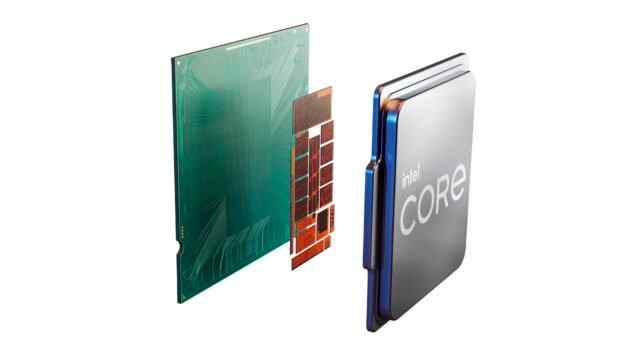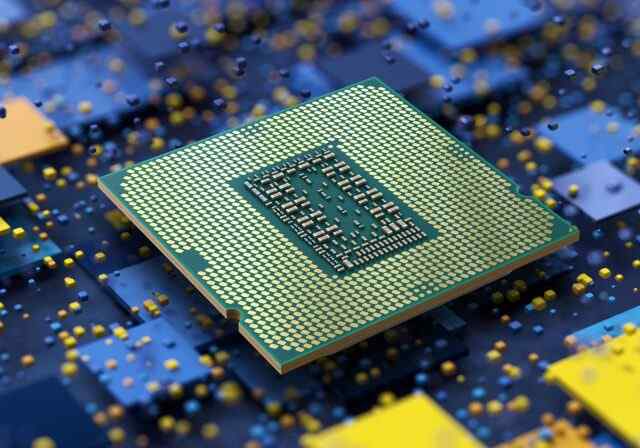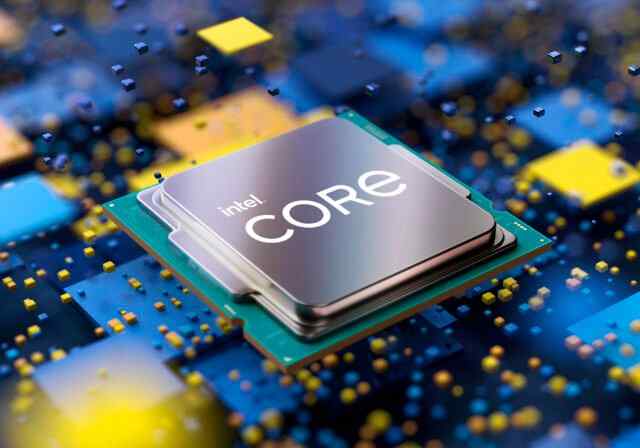Intel Core i9-11900K Review
11th Gen Intel Core S-series desktop processors are available for purchase from 30th March 2021 on Amazon at $399. The flagship of the new series, codenamed “Rocket Lake-S”, is the Core i9-11900K model that we have examined. The Intel Core i9-11900K is an eight-core processor aimed at gaming and PC enthusiast with up to 5.3GHz thanks to Intel Thermal Velocity Boost.
Built on the new Cypress Cove architecture designed to be 10 nm, 11th Generation Core S-series desktop processors promise a 19% improvement in commands per cycle (IPC) compared to the previous generation.
Integrated Xe Graphics
Another notable point in new processors is the internal Intel UHD GPU with Intel Xe graphics architecture. Intel claims that the Intel UHD iGPU with Xe graphics architecture offers up to 50% higher graphics performance.

Game Performance is Again in the Forefront
Intel has been at the forefront of gaming performance for many years. The company wants to maintain its superiority in gaming performance on 11th Gen desktop processors as well. Leading the series is the Core i9-11900K model with 5.3 Gigahertz peak Boost frequency, eight cores, 16 threads, and 16 megabytes of Intel Smart Cache technology.
The unlocked 11th Gen Intel Core desktop processor supports DDR4-3200 MHz memory frequency. Of course, it is worth mentioning that there are Gear 1 and Gear 2 modes here. In Gear 1, that is, the 1st Gear mode, the processor, and memory frequency are operating in 1: 1 mode. This mode allows you to get the highest performance from the system, which we conducted our tests in Gear 1 mode.
Besides, there is Adaptive Boost Technology that Intel has made available in this generation. Thanks to Adaptive Boost Technology, when the processor is in Turbo mode if 3 or more cores are active, Turbo Boost 2.0 tries to provide the best frequency within the power budget, regardless of the frequency table. The limit of this frequency is given by TB2 in 2-core mode. ABT overrides TVB when 3 or more cores are active.
Real-Time Memory Frequency Setting
11th Gen Intel Core desktop processors also come with new overclocking tools and features that enable more flexible tuning. In this generation, the company offers real-time memory overclocking support.
This feature allows the DDR4 frequency to be changed in real-time. With this new feature, users can change the memory frequency under Windows without entering the BIOS. Intel is also expanding memory overclocking support for the H570 and B560 chipsets; The brand new integrated memory controller with broader timing and Gear 2 support (alongside Gear 1 support) comes with the 11th Generation.

What are Gear 1 and Gear 2?
When we look at the Rocket Lake-S specifications, we see that Intel’s i9-11900K (F) models are DDR4-3200 Gear 1. All other SKUs support DDR4-3200 Gear 2. DDR4-2933 works in Gear 1 mode. The Gear system is similar to AMD’s Infinity Fabric overclocking. Gear 1 synchronous mode is 1: 1, while Gear 2 is the asynchronous mode 1: 2, so: 1.
The second mode generally allows higher clock speeds but brings more latency that can affect performance, so it may require fine-tuning. If you run the processor in 1: 2 asynchronous IMC mode, which is the official Intel DDR4-3200 specification, you may get poor performance in lag-sensitive tests such as gaming.
PCIe 4.0 Support
The new 11th Gen Intel Core S-series also brings PCIe 4.0 technology, which is twice as fast as PCI Express 3.0. 20 PCIe 4.0 lanes, Intel Quick Sync Video, advanced media (10-bit AV1 / 12-bit high-efficiency video encoding, decoding, and end-to-end compression), advanced display (integrated HDMI 2.0, HBR3), and discrete Thunderbolt 4 and Intel Wi- Fi 6E support is among the other features offered by this series.
Intel Core i9-11900K Specs
- Intel Core i9-11900K
- MSI MPG Z590 GAMING CARBON WIFI BIOS: 1.34 ABT
- RTX 3080 Founders Edition
- Skill Trident Z Neo 4 × 8 GB DDR4 3600 MHz RAM F4-3600C16Q-32GTZNC
- NZXT Kraken X73 360mm Liquid Cooling
- ASUS ROG Thor 1200W 80 Plus Platinum OSU
- Samsung SSD 980 NVMe
- NVIDIA 461.92
- Windows 10 20H2

Test Notes
- We started the test with the Corsair A500 cooler, but this cooler was insufficient. In this context, we replaced our cooler with the NZXT Kraken X73.
- With the A500, the processor went to 100 degrees, causing the system to sometimes give a blue screen.
- With the NZXT Kraken X73, this problem has disappeared, but even with this cooler, the processor reached 89 degrees in some tests.
- When we looked at the PSU, we saw that the pure processor consumed 524 Watts at the peak.
Core i9 11900K Synthetic Test Results
| Test | Core i9-9900K | Core i9-10900 | Core i9-11900K A500 | Core i9-11900K NZXT | Ryzen 9 5950X |
| CineBench R15 1T | 218 | 255 | 255 | 264 | |
| CineBench R15 nT | 2496 | 2584 | 2599 | 4143 | |
| CineBench R20 1T | 484 | 516 | 620 | 640 | 624 |
| CineBench R20 nT | 4878 | 5851 | 6240 | 6314 | 9547 |
| CineBench R23 1T | 1663 | 1649 | 1600 | ||
| CineBench R23 nT | 16138 | 16394 | 24538 | ||
| GeekBench 5 1T | 1354 | 1386 | 1851 | 1854 | 1672 |
| GeekBench 5 nT | 8945 | 10885 | 11782 | 11768 | 15956 |
| Blender Fishy Cat | 00:23 | 00:30 | 00:27 | 00:26 | 00:25 |
| Blender BMW CPU | 02:40 | Collapsed | 02:28 | 02:26 | 01:43 |
| AIDA64 Memory Read | 51060 MB / s | 48376 MB / s | 54084 MB / s | 54718 MB / s | |
| AIDA64 Write Memory | 51229 MB / s | 51915 MB / s | 53665 MB / s | 53972 MB / s | |
| AIDA64 Memory Copy | 45214 MB / s | 48429 MB / s | 55384 MB / s | 50421 MB / s | |
| AIDA64 Memory Latency | 44.6ns | 53.0ns | 46.9ns | 64.8ns | |
| Adobe Premiere Pro | 04:09 | 03:39 | 02:09 | 02:18 | |
| Adobe Photoshop 2021 0.93.1 | 1022 | 1243 | 1203 | ||
| Corona 1.3 | 01: 38sec
Beam / sec: 4.944.190 |
01: 19sec
Beam / s: 6.098.480 |
01:20
Beam / sec: 6.016.180 |
00:48
Beam / sec: 9.936.660 |
|
| V-Ray 4 | 14618 ksamples | 17515 ksamples | 18598 ksamples | 28933 ksamples | |
| V-Ray 5 | 12396 vsamples | 19420 vsamples | |||
| HandBrake 1.3 | 06: 09sec | 05: 17sec |
04:36 |
03:59 |
Intel Core i9-11900K Game Performance
| Game | Resolution and Graphics Setting | 9900KS | 5950X | 11900K |
| Apex Legends | 4K Very High |
Min. 78
Cover. 122 Max. 145 1 82% 0.1 76% |
Min. 87
Cover. 135 Max. 214 1 92% 0.1 85% |
Min. 86
Cover. 133 Max. 227 1 90% 0.1 82% |
| Counter-strike Global Offensive | 1080p
Very low |
– | – | Min. 256
Cover. 430 Max. 1017 1% 219 0.1 137% |
| Counter-strike Global Offensive | 4K
Very High |
– | Min. 209
Cover. 302 Max. 394 1 139% 0.1 48% |
Min. 214
Cover. 284 Max. 394 1 139% 0.1 53% |
| Mount & Blade II Bannerlord | 1440p
Very High |
Min. 131
Cover. 153 Max. 191 1% 137 0.1 130% |
Min. 101
Cover. 158 Max. 272 1% 116 0.1 10% |
Min. 111
Cover. 142 Max. 185 1% 113 0.1 54% |
| PUBG | 1440p
Ultra |
Min. 119
Cover. 153 Max. 231 1 98% 0.1 33% |
Min. 120
Cover. 194 Max. 252 1% 107 0.1 34% |
Min. 151
Cover. 216 Max. 284 1% 134 0.1 49% |
| Red Dead Redemption 2 | 1440p
Ultra |
Min. 32
Cover. 95 Max. 139 |
Min. 39
Cover. 95 Max. 115 |
Min. 52
Cover. 95 Max. 144
|
| World of Tanks Encore RT | 1080p
Min |
Min. 261
Cover. 404 Max. 664 1% 245 0.1 204% |
Min. 263
Cover. 414 Max. 701 1% 256 0.1 225% |
Min. 267
Cover. 420 Max. 742 1% 256 0.1% 217 |
| World of Tanks Encore RT | 1440p Ultra Ray Tracing Ultra |
Min. 119
Cover. 171 Max. 468 1% 115 0.1 105% |
Min. 120
Cover. 171 Max. 323 1% 117 0.1 110% |
Min. 117
Cover. 166 Max. 316 1% 115 0.1 108% |
| World of Tanks Encore RT | 4K
Ultra Ray Tracing Ultra |
Min. 60
Cover. 88 Max. 253 1% 60 0.1 58% |
Min. 62
Cover. 91 Max. 267 1 62% 0.1 69% |
Min. 61
Cover. 86 Max. 159 1 61% 0.1 58% |
Result
The launch of Intel’s 11th Gen processors has been a painful process. First, the processors went on sale early on some websites abroad. Thereupon, some foreign sources examined the processor before the NDA date, but it was observed that some problems with memory frequency emerged in these examinations. The reason for this was that the 11900K model supported Gear 1 and Gear 2 modes, while the Gear 2 model was used, which was lower in games in tests.
Of course, sometimes there are many advantages to complying with NDAs. The biggest advantage here was to test it with the updated BIOS with ABT support. Thanks to ABT, the processor can reach higher frequencies in multiple cores, so we were able to see 5.2 GHz speeds in our tests.
So, can the 11900K deliver what is expected? Short answer: No. Intel has put in all its strength to avoid falling behind in single-core performance, but things seem a bit rushed. They produced an architecture designed for 10nm production as 14nm and reduced the number of cores by 20%.
As a result, the 11900K has lost two more cores from its previous sibling, the 10900K, but that’s not the real problem. The problem is that the processor is consuming excessive power. Almost all motherboards on the market lift CPU power limits, which resulted in our 11900K test system seeing 524W instantaneously – with no load on the graphics card! This is not an acceptable value.
Another problem for the 11900K is cooling. Forget about air cooling this processor. This is possible only if you limit the power limits, and then you won’t get performance. So the solution? You should use a cooling off at least 240, preferably 360mm. Even in this case, the processor managed to see 89 degrees.
Should You Buy Intel Core i9-11900K?
If you have a 9th Gen system, you don’t have much reason to switch to the 11th Generation. PCI Express 4.0 is only worth it for SSD performance, which means that this platform only supports PCIe 4.0 in one socket. High memory frequency can already be accessed with XMP. Xe Graphics? It doesn’t make sense for someone with an external graphics card. In short, there is no reason for 9th generation owners.
There is no huge difference in performance for 10th generation users, either. On top of that, the number of cores decreases, and the power consumption increases even more. It makes much more sense to wait and buy the 12th Gen, especially because of DDR5 support.
As a result, the Core i9-11900K does not stand as a logical processor with its current performance, price, power consumption, and above all, the total cost of ownership. If Intel makes a serious price cut, 11th Gen processors may be attractive to users already using LGA 1200. And of course, for users who cannot find a processor due to stock problems.
Intel Core i9-11900K Price and Availability
The Intel Core i9-11900K is officially released on 30th March 2021 and is available on Amazon at $439 while the retail price is around $539 (about £390, AU$710).
Read More: Best Gaming Laptops of 2021
Follow Top and Trending on Google News and receive the latest alerts and the main news about apps, technology, beauty, entertainment, and all the top 10 related posts.


